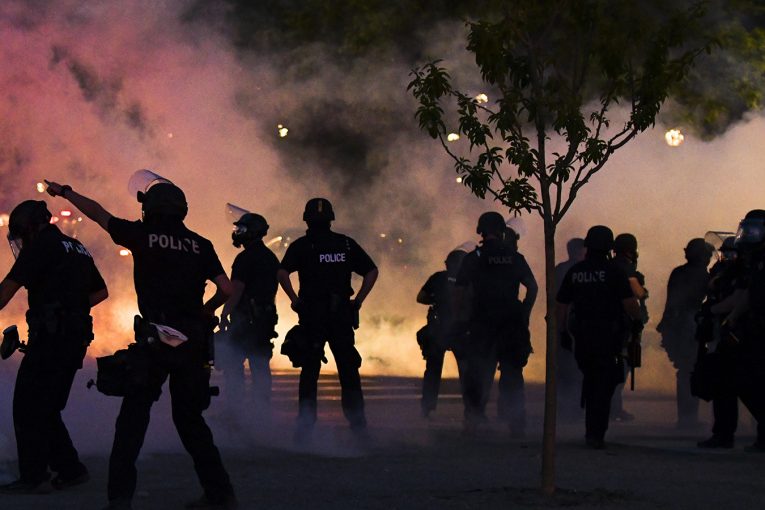
By Andrea Bernal
WASHINGTON, DC – The American Civil Liberties Union (ACLU) this past week urged Congress to move “swiftly,” in a statement regarding the Senate’s reintroduction of George Floyd Justice in Policing Act of 2024, which would seek to address “racial profiling and the excessive use of force” that often results in “deadly police encounters.”
The ACLU noted that although Floyd, a Black man killed “at the hands of a white police officer” four years ago, the U.S. Senate still has not held a vote on this bill—the George Floyd Justice in Policing Act—despite “bipartisan passage in the U.S. House of Representatives.”
According to the ACLU statement, one of the bill’s provisions would be to limit the transfer of equipment used on battlefields from the Pentagon to local police departments as well as limit the use of biometric and facial recognition technology.
The ACLU’s director of policy and government affairs, Cynthia W. Roseberry, said that it “must go further to provide strong federal intervention that protects the rights of individuals against the often unchecked power of the police.”
Roseberry adds, “Nearly four years since George Floyd’s murder, systemic racism and disproportionate use of lethal force continue to plague America’s approach to policing.”
Roseberry charged the recent killing of Sonya Massey in her home is a “painful reminder that the killing of Black people in America continues unabated. National change is long overdue.”
The ACLU notes at least 1,247 people were killed by police in 2023, and so far in 2024, “there have only been 10 days where police did not kill someone. Black and Brown individuals, LGBTQ+ individuals, and individuals with disabilities are still more likely to be killed or harmed by police in America.”
Roseberry addressed the problem of immunity for police officers under the law, pointing to a law passed in Louisiana which essentially banned persons from filming police officers at 25 feet “if ordered to step back so members of the public and journalists cannot record chokeholds, beatings or capture badge numbers to file complaints.”
Roseberry argued, “No one should be above the law, including police.”
The ACLU official added this “court-created doctrine of qualified immunity” ultimately serves to “protect officers who engage in the most egregious conduct by preventing their victims from holding officials liable for preventable injuries and deaths.”
Roseberry suggested, “A law creating a publicly available registry of police misconduct is essential to prevent dangerous officers from evading accountability,” urging Congress to “act swiftly to guarantee the civil rights, civil liberties and safety of all of us.”